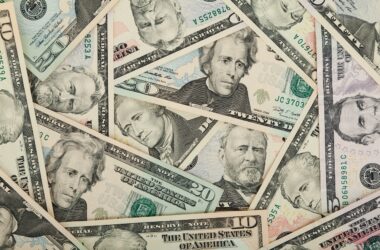A book published 44 years ago on the future of the US economy turns out to be both incorrect and reassuring.
Sometimes the best way to understand the future is to look to the past. Out of curiosity, I recently cracked open The American Economy in Transition, published in 1980, edited by Martin Feldstein and including contributions from other Nobel-winning economists, successful business leaders and notable public servants. Though most of the essays get it wrong, I found the book oddly reassuring.
The problems the book describes truly are of a different era. On one hand, I was comforted to learn that many of these fears turned out to be unfounded. On the other, I am concerned that many current economists are not worried about the correct things.
For instance, many authors in the book are focused on capital outflow as a potential problem for the US economy. Today, of course, the more common concern is a possible excess inflow of foreign capital, combined with a trade deficit in goods and services. Another concern cited in the book is European economies catching up to the US. Again, that did not happen: The US has opened up its economic lead. Energy is also a major concern in the book, not surprisingly, given the price shocks of the 1970s. No one anticipates that the US would end up the major energy exporter that it is today.
Then there is the rise of China as a major economic rival, which is not foreseen — in fact, China is not even in the book’s index. Nether climate change nor global warming are mentioned. Financial crises are also given short shrift, as the US had not had a major one since the Great Depression. In 1980 the US financial sector simply was not that large, and the general consensus was that income inequality was holding constant. Nor do the economics of pandemics receive any attention.
So you may see why the book stoked my fears that today’s economists and analysts do not have a good handle on America’s imminent problems.
As for opportunities, as opposed to risks: The book contains no speculation about the pending collapse of the Soviet Union. Nor are the internet, crypto or artificial intelligence topics of discussion.
One thing which many essays get right is the seriousness of the productivity slowdown that started in 1973, combined with a slowdown in real wage growth. This trend was mostly overlooked during the heady optimism of the 1980s and 90s, but in fact it has been true of much of the post-1973 era up through about 2015.
Some worries are present, but don’t seem nearly strong enough. The fall in fertility rates is discussed, but no one anticipates the US rate falling to 1.62, well below replacement, as was measured for 2023.
Inflation receives a lot of attention, unsurprisingly as some US inflation rates in the 1970s approached 15%. Overall the discussion is too pessimistic. Milton Friedman, for instance, despairs that it will not be politically viable to implement a disinflation program until inflation rates reach 25%. Of course Federal Reserve Chair Paul Volcker’s disinflation program was just starting (presumably Friedman’s piece was drafted before January 1980, when the conference based on the book was held).
Then there are the things that haven’t changed much over the decades. Peter G. Peterson, who helped to found the fiscally conservative Peterson Institute, has an essay in the book worrying about the federal deficit.
The piece that most resonated with me, contrary to expectation, is by Paul Samuelson. Samuelson is the one contributor who realizes he doesn’t understand what is going on in the world. He starts by mentioning how forecasts in 1929 and 1945 failed to see the future very clearly. He hopes that the 1980 contributions will be luckier. “The facts tell their own story,” he writes, “but it is not the simple story that so many want to hear.”
Perhaps true reassurance comes from knowing that, all things considered, the US economy has done quite well since 1980. No, the best experts at the time weren’t quite right about the major challenges ahead, just as they probably aren’t today. Then again, maybe the great genius of America is that we have built a system so robust that it is impervious to misdiagnosis and faulty analysis. If so, let’s hope that system continues — whatever its specific problems may be.








